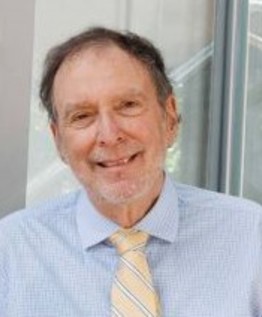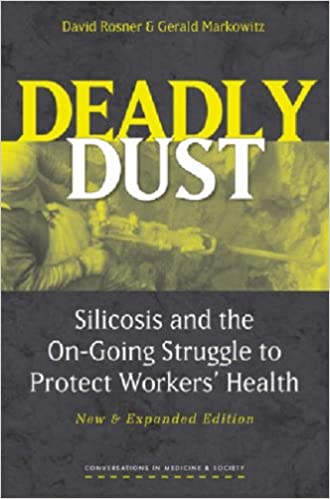In 2000, Columbia University Professor David Rosner wrote an article for the American Journal of Public Health asking the question – When Does a Worker’s Death Become Murder?
Rosner reviewed what were at the time a growing number of manslaughter and even
murder charges brought against corporations and their executives in cases involving worker deaths.
Rosner looked at earlier periods in American history when worker deaths were considered a form of homicide. He looked at the social forces that shape how we define a worker’s death – as an accidental, chance occurrence for which no individual is responsible, or as a predictable result of gross indifference to human life for which the corporation and top executives bear criminal responsibility.
“In a theme that would appear repeatedly, reformers compared the toll of industrial accidents to that of an undeclared war, sometimes a war on workers themselves,” Rosner wrote. “In 1904, for example, The Outlook, a mass-circulation magazine, commented on the horrendous social effects of industrialization.”
“‘The frightful increase in the number of casualties of all kinds in this country during the last two or three years is becoming a matter of the first importance. A greater number of people are killed every year by so-called accidents than are killed in many wars of considerable magnitude. It is becoming as perilous to live in the United States as to participate in actual warfare.’”
“The magazine demanded that the states begin counting industrial accidents and deaths “in order that the people of the United States may face the situation and understand how cheap human life has become under American conditions.”
But today, we are back to square one. There are very few criminal prosecutions for workplace deaths. If the government prosecutes, they prosecute against smaller entities, not against large corporations and their executives.
This double standard was crystallized last month when the Justice Department brought criminal charges against a small Alabama company in the death of a worker (the company pled guilty) but has refused to open a criminal investigation against Caterpillar for the death of Steven Dierkes, who was annihilated when he fell into a vat of molten metal at a plant in Illinois. (See “The Thermal Annihilation of Steven Dierkes, 37 Corporate Crime Reporter 5, January 30, 2023).
OSHA is reporting that the number of deaths on the job is beginning to tick upwards. Part of it has to do with the fact that the government has been unable to deter this kind of egregious wrongdoing through the kinds of criminal prosecution you laid out in your article in 2000.
You get the death of Steven Dierkes at the Caterpillar facility when he falls into a vat of molten metal. The families are calling for criminal prosecution of the company.
Since you wrote that article, there have been very few criminal prosecutions sending executives to jail. The amazing thing about your article is that it was a one off. You don’t see that kind of article coming from the schools of public health. Is there active co-optation?
“There is actual co-optation,” Rosner told Corporate Crime Reporter in an interview last week. “Schools of public health actually accepted tobacco money. Schools of public health are social institutions. They are built around social values of the moment. And right now, schools of public health often look for factors in the individual’s lifestyle that create the susceptibility to disease rather than try to assign blame to one specific factor.”
That fits very well with the political program of the big corporations.
“Yes. And you can see in the history of public health the institutions have moved away from any confrontation with political issues. In the 19th century, public health was an implicitly political issue.”
“You had to fight the forces that didn’t want to put street cleaning, sewer systems, or water supplies, and charge landlords to put clean water into their buildings or bathrooms and plumbing. These were all fought for and gained through political reforms. These were public health political movements.”
“When public health moved into the universities, public health became a profession and was removed from the world of politics. They view that they were scientists and objective and removed from the political scene became part of the identity of the science of public health. We are now evidence based researchers. We want policy to come out of evidence. We don’t want to be advocates.”
“And public health came to support industrial conservatism and did not confront the powers that are causing the problems.”
What percentage of public health academics fall into that camp?
“It’s hard to say. The people in public health are very decent human beings. When you go to a school of public health, you are not going to find anyone who wants to harm someone. They believe they are doing good. But the idea of objectivity and being removed from political decisions and only depending on research — it all becomes a means of allowing yourself to be co-opted.”
“It’s not like they are consciously colluding.”
There is also conscious collusion. There are public health academics who consult with major corporations.
“There are. That’s a real problem. There are consulting companies that hire people to present information.
I was reading the transcript of the family members of those killed in the two Boeing crashes. And they want responsible Boeing executives to go to jail. And same for the family of Steven Dierkes who was incinerated in that vat at the Caterpillar facility in Illinois. At the same time, the elites at the Department of Justice and the big law firms and in academia – they are perfectly fine with no criminal prosecution of corporate executives. It’s a class thing. If you are victimized by a major corporation, you are in a totally different situation from someone who is studying it from afar.
“The class issue is real. Where do schools of public health get their reinforcement? They work with the cultural and social elite. You don’t have much contact with workers. You don’t have daily experience in a plant. You are working at a university and your prestige comes from occasionally being asked to speak to some political body or being courted as an important person, going to the right dinners. You don’t have your daily contact with the people who are adversely affected by industry.”
“I was involved in a lawsuit in Texas years ago. This changed my whole life in some sense. I wrote a book in 1991 about the history of silicosis, a very obscure disease now. But back in the 1930s, it was considered the king of occupational diseases. The book was called – Deadly Dust: Silicosis and the On-Going Struggle to Protect Workers’ Health. I thought a few scholars would read it. But it was picked up by lawyers who were dealing with silicosis in mining communities and oil refineries around the country.”
“I was down in Odessa, Texas testifying in front of a jury about this poor Mexican immigrant worker who had been sandblasting storage tanks during the OPEC crisis without any masks, without any protection. He was cleaning off the inside of a tank because suddenly Texas oil became valuable. And he developed this horrifying disease that was killing him. During one of the breaks, the wife and daughter of this man came up to me. I was sitting in the hallway outside of the courtroom waiting for some kind of a decision on my testimony. And they came up to me to thank me. And I had to tell them that I was looking at the jury and I knew that this jury had no sympathy for this man – no sympathy at all. They saw him through the lens of the various prejudices they had about Mexicans coming up and taking their jobs. You could just see it on their faces.”
“I said to this poor woman’s daughter – thank you very much for her kind words. But I hate to tell her, there is not going to be a monetary reward. I could tell from the faces of the jury. So tell her she shouldn’t be hopeful of some kind of monetary reward. The daughter talks to the mother and then the mother talks to her. And the daughter says to me – my mother doesn’t care about the money. She wants to thank you because you came all the way from New York City to defend her husband and to tell the jury and the world that his life was worth something.”
“I virtually burst into tears at that moment. She said it wasn’t about the money, it was about the immorality of the situation, about the fact that her husband had been so dehumanized and his life was considered so worthless and there she was trying to bring some justice. She wanted a public hearing about the value of her husband’s life.”
“I was taught that these court cases were about money. I incorporated the arguments about shyster lawyers and money grubbing lawyers. But it’s not about that. It’s about social justice. I go to these court cases because I feel it’s more than about getting monetary awards. It’s about human dignity. It’s about our responsibilities as professionals. It’s about American culture and society and how we treat people who do the work for us, for my class of people. And we don’t know it.”
“The faculty at schools of public health are well meaning. But they don’t get the experience of the working people. They don’t have the internal emotional sympathy. They might have intellectual sympathy. But they don’t know that world.”
Your point of view seems to be a minority view in the field of public health.
“If you speak with them it’s not. But if you watch their actions, you can see that they don’t want to be part of a big debate. They want to run their labs, do their research, do their work without having to feel like their intellectual life is being compromised or being sullied by participation in social struggles. They don’t see themselves as activists. They don’t see themselves as reformers. They see themselves as scientists.”
In the story we ran on Steven Dierkes, the man who was annihilated at a Caterpillar factory, we reported on no criminal prosecution. This despite the fact that there was an OSHA wilful violation citation. The issues you raised in your 2000 article on criminally prosecuting these egregious cases seem to have been ignored.
“I don’t understand why these cases end up in civil court. They should be in criminal court. I’ve said that to juries. I’ve said – I don’t understand why I’m here. Why isn’t this in criminal court? Lead poisoning, asbestosis – why aren’t we in criminal court?”
How do you answer that question?
“Throughout our history we have avoided the issue of responsibility for industrial production. Industry is so central to our economy. The industrials have enormous sway, enormous power, enormous political influence. It’s almost impossible to get to criminal court.”
Who are young and upcoming activists in the field of public health?
“I don’t see it coming from inside the field right now,” Rosner says.
The field of public health is dead?”
“It’s not quite dead. But it’s on life support.”
[For the complete q/a format Interview with David Rosner, see 37 Corporate Crime Reporter 6 (12), February 6, 2023, print edition only.]

